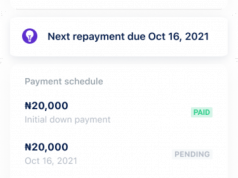JANUARY 18, 2018 – Travelling with Kids can be one of the most exciting experiences and at the same time one of the most daunting tasks a guardian or parent can ask for or imagine.
Kids are eager to make the best use of their travelling experience not minding the discomfort it may cause their parents or guardians.
On the other hand, some parents are often scared to take a long journey with small kids since they can become cranky and get bored easily. Kids love to move a lot, do impulsive things and ask a lot of questions at the same time anything can push their cry button.
You need to make sure if the flight is perfect for them and the list goes on. But let’s explore some tips that can be useful after all.
Toys:
Toys are always a wonderful distraction for children especially toddlers. The toy gives them a level of satisfaction and distracts them for as long as possible.
Download video games on gadgets:
Because children are very restless and need attention, video games could be of great help to them. A game can hold their concentration and sap their strength eventually. Games also entertain.
Ask for “meet and assist:”
If you’d like to be met at check-in and helped with the children and the bags all the way to your plane, ask for ‘meet and assist’ services when booking your flight. This is generally provided by the airport and not the airline, and whether or not you get it depends on the availability of staff – but if you’re travelling as a single parent with more than one child, you’ll be given priority.
Check for restrictions on hand luggage and improvise:
Check the latest restrictions on hand luggage before travelling. The more common stringent regulations relate to carrying liquids, gels and creams, which includes baby foods, drinks and nappy cream. The standard instructions are not to carry over 100ml of any single item, although exceptions are usually made for essential medicines or supplies for children under two. The best way around the restrictions is to decant creams into small containers and bring powdered milk not in their original cartons without hot water. Flights usually provide both hot and cold water for passengers and as soon as you pass security you can buy bottled water.
Book ahead:
Some airlines let you book and check in online, which allows you to book preferred seats from home and eliminates out queuing or tussle for a good spot. When you get to the airport, you usually join a fast-track queue to hand over your checked luggage.
Some airlines allow you to check in luggage in advance, sometimes as much as a day before you fly. Though you have to make an advance trip to the airport to do this, the advantages are that you get to turn up a little later than usual on the day, and will have your hands free to tend to your children.
Get enough water:
The low humidity of cabin air can cause mild dehydration as well as dry and irritated nostrils, so it’s important to get kids to drink regularly. If anyone gets a streaming nose (also a factor of low humidity), wet the insides of their nostrils with a finger dipped in water – this often works like magic.
Flying can also prompt air expansion in the middle ear and sinuses, which can be painful for babies and infants because of their smaller ear passages. To prevent discomfort, massage your child’s ears from behind and give the earlobes a few gentle tugs from time to time. Toddlers also find it helpful to suck on something or have a drink during take-off and landing.
Doctors prescriptions in case of emergency:
Some children have certain allergies, in this case, their doctors’ prescriptions would come in handy. Some children are also on medications for special cases. Do well to always travel with the doctor’s prescription in the language of your destination or in a universally accepted language.
The doctor’s prescription should state how serious the condition is and it’s implication if not adhered to.









